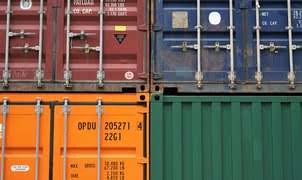What are INCOTERMS (R) 2010
08 Jan 2016

More and more individuals and companies are importing goods and manufacturing goods overseas. It all seems relatively simple but there are numerous cases of importers getting burned. There are many potential issues with importing goods including amongst others duty, insurance, inspection and quality control however this article is specific to the transport aspects.
If you buy or sell goods as part of an international sale or purchase contract then it is likely that Incoterms plays a part in the transaction and that you would be familiar with the term. Unfortunately many clients are not aware of Incoterms implications to their transactions.
Incoterms is short for International Commercial Terms which are a series of commercial terms published by the International Chamber of Commerce to clearly communicate the tasks, costs, and risks associated with the transportation and delivery of goods. They are internationally recognised standards setting out who has to pay for each stage of transportation and at who’s risk the goods will be at any given point in the transportation process.
Incoterms are divided into two categories – rules for any mode of transport and rules specifically for shipping by sea.
Common terms include the following:
-
EXW (Ex Works) where the goods are picked up from the sellers premises and are at the risk of the buyer from that point. The buyer in such cases is not obliged to provide proof to the seller that the goods are for export which can have tax implications for the seller.
-
FOB (Free on Board) where the seller bears all costs and risks until the Goods are loaded onto the vessel including export clearance. Costs of marine freight, insurance and all destination port and import costs are met by the buyer.
-
CIF (Cost, Insurance and Freight) where the seller bears all costs and risks up to the port of import. The cost and risk of unloading the goods at the port of import must be agreed between the parties as the terms do not cover this.
-
DDP (Delivery Duty Paid) where the seller delivers the goods to the buyer’s specified destination at the seller’s sole cost and risk. The buyer is then responsible for unloading at its premises.
Issues often arise when parties sign sale agreements without carefully checking which Incoterm is to apply. Obviously the cost difference of different Incoterms can be significant and profit margins can vanish if a mistake is made.
Consideration also has to be given to practical considerations such as the ability of the buyer to arrange an export shipment in the seller’s location. Often it is better to negotiate the seller arranging transport and customs clearance in their own country.
Insurance is another key consideration related to Incoterms. This is particularly important where a goods shipment has been financed by a third party whose finance terms require full insurance of the goods during transit. Failure by the buyer to realise its obligations to properly insure a shipment could lead to the buyer being fully liable for the debt and in breach of the finance agreement should a shipment fail to arrive.
The relevant Incoterm is often related to the terms of payment for international sale of goods transactions. A common example is where production of a bill of lading for a FOB transaction triggers payment of any remaining purchase amount for the goods as the risk passes to the buyer at this point.
International transactions' contracts should always be reviewed by a suitably experienced professional advisor to ensure that the parties are clear on their respective responsibilities and to avoid potentially costly international disputes.
For further information contact Murfett Legal by emailing one of the following directors:
Jason De Silva (Director): [email protected]
Kelly Parker (Director): [email protected]
Peter Broun (Director): [email protected]
Download PDF
Back To Articles